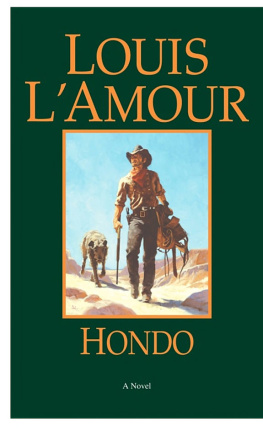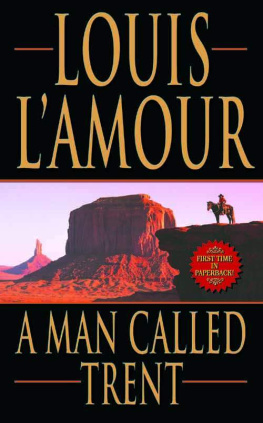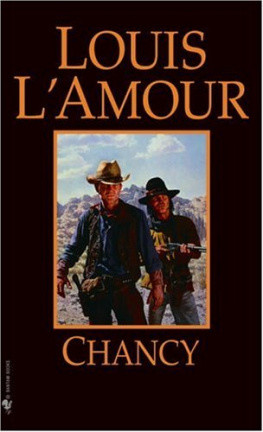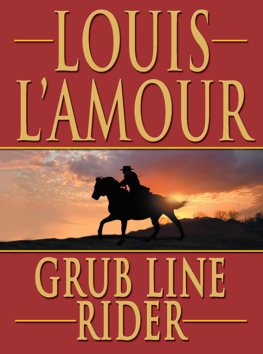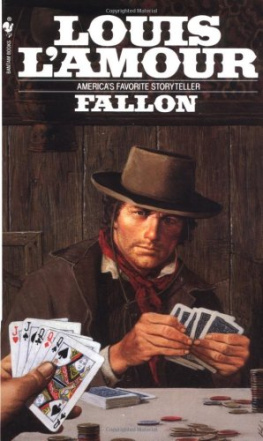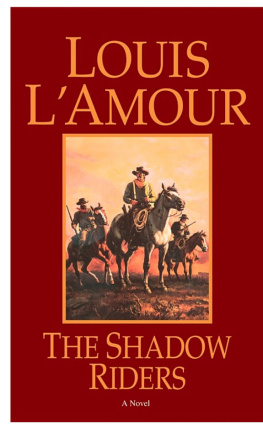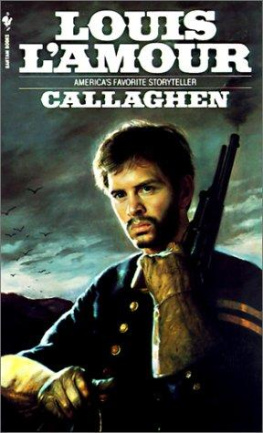Louis LAmour - Callaghen: A Novel
Here you can read online Louis LAmour - Callaghen: A Novel full text of the book (entire story) in english for free. Download pdf and epub, get meaning, cover and reviews about this ebook. year: 2004, publisher: Bantam, genre: Detective and thriller. Description of the work, (preface) as well as reviews are available. Best literature library LitArk.com created for fans of good reading and offers a wide selection of genres:
Romance novel
Science fiction
Adventure
Detective
Science
History
Home and family
Prose
Art
Politics
Computer
Non-fiction
Religion
Business
Children
Humor
Choose a favorite category and find really read worthwhile books. Enjoy immersion in the world of imagination, feel the emotions of the characters or learn something new for yourself, make an fascinating discovery.

- Book:Callaghen: A Novel
- Author:
- Publisher:Bantam
- Genre:
- Year:2004
- Rating:3 / 5
- Favourites:Add to favourites
- Your mark:
- 60
- 1
- 2
- 3
- 4
- 5
Callaghen: A Novel: summary, description and annotation
We offer to read an annotation, description, summary or preface (depends on what the author of the book "Callaghen: A Novel" wrote himself). If you haven't found the necessary information about the book — write in the comments, we will try to find it.
Callaghen: A Novel — read online for free the complete book (whole text) full work
Below is the text of the book, divided by pages. System saving the place of the last page read, allows you to conveniently read the book "Callaghen: A Novel" online for free, without having to search again every time where you left off. Put a bookmark, and you can go to the page where you finished reading at any time.
Font size:
Interval:
Bookmark:
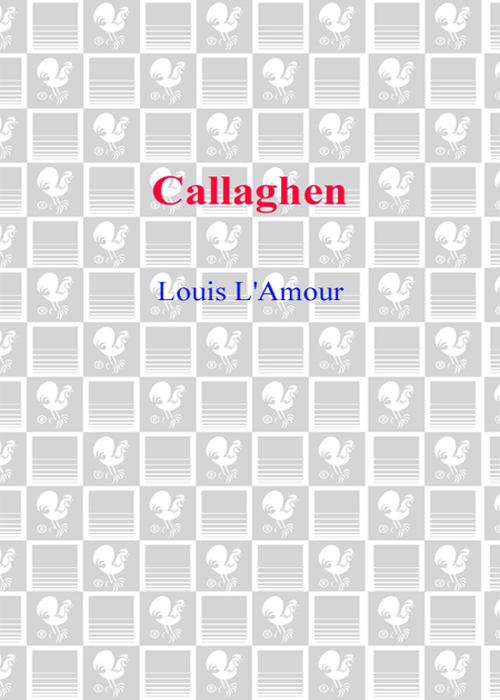
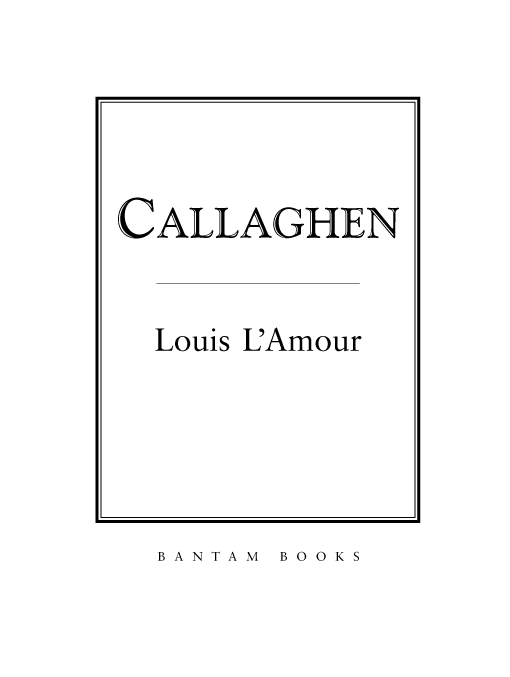
Contents
A T IME TO D IE
A FEW LAST stars still hung in the sky. A faint coolness touched his cheek as the wind stirred. The twisted Joshua trees thrust their thick arms at him. He spoke softly to his horse. All right, boy, lets go.
He started to canter. Sitting tall in the saddle, a pistol in his right hand, he rode out into the last dim period before the dawn. His mouth was dry, his heart was beating with heavy throbs. He touched his tongue to his lips, his eyes slanting left and right.
They were waiting for him eagerly, he knew. They wanted him dead, they wanted his guns, and they wanted his horse for the meat it would give.
He rode straight into the morning, his gun ready, and death rode with him, almost at his side.
To all
who travel the desert road,
wherever the desert,
whatever the time.
Chapter 1
B EHIND THE ROCKS the Mohaves lay waitingand in the sky, the buzzards. Each was sure of their prey.
The four men lay in a flat place, and the sun was high. Two days had passed without water, four days without food, and their ammunition was down to its last few cartridges.
Before them was a peak they believed to be Eagle Mountain; if so, there was a water hole up the draw to the right. Of this they could not be sure, but they believed in it as a dying man believes in God.
For three days they had thought of that water, longed for it, dreamed wild dreams of it. The most gorgeous woman under heaven would have been spurned by any one of them for one swallow of water, be it brackish, sulphurous, or whatever.
The patrol began as they always begin; in this case there were six enlisted men and one officer. The officer was a proud, honorable, and decent young man with his first command, his first patrol into enemy country, where they had seen no enemies for two whole days and nights.
A camping spot had been decreed, and when the Delaware advised against it the lieutenant felt he could not permit his decision to be questioned. A few miles farther along, the Delaware assured him, there was a water hole and a defensible position. The young lieutenant hesitated, then decided to stay where they were.
They bedded down on level ground, in soft sand. The men slept well, for they were tired. Callaghen was to stand watch the first few hours, to be relieved by Private Baldwin.
The night was very clear, and as always in the desert it was cool, almost cold. The heat of the day vanished with the sun, for the rocks and sand did not hold the heat, but surrendered it quickly to the night.
Callaghen was wary. He was an experienced soldier, and he did not like the feel of the night, and he had been watching the Delaware.
The eastern Indian came of a tribe that numbered great trackers and warriors among them, but they had been driven from their homeland and were now scattered widely over the West. The Delaware had seemed uneasy, his head constantly turning, his eyes busy.
The attack came with the first light. Their horses were stampeded, one man was killed, another wounded.
Although the just awakening soldiers got off a few shots, there was no indication they had hit anything. The Indians vanished as they had come, fading into the sands like ghosts.
What followed was sheer hell. After waiting until the sun was up, the lieutenant formed them into a column of twos and they started out. The lieutenant walked beside Callaghen.
Well, they got what they wanted, he commented, but it is good to be rid of them.
If we are.
You do not think they have gone?
No, sir.
Then why dont they attack?
Callaghen shrugged. It is not their way, sir. They are watching us from out there, to see what we will do. They know this desert. They know what is ahead and we do not. They can plan, but our reaction must depend on circumstances.
You are an educated man, the lieutenant said.
Possibly. I have never been sure just what the term implies.
The lieutenant glanced at him, but was silent. They plodded on through ankle-deep sand. The dust rose, covering their clothing, their faces and hands. The wounded man kept up. He had been an Indian-fighting soldier for a long time, and he knew what it would mean to fall behind.
The heat was stifling, and there were no clouds. Rocky ridges, bare of vegetation, lay to the left and right, but not close by. Occasionally there were scattered clusters of rock, some greasewood, and clumps of cactus or coarse gray shrubs.
At noon the lieutenant called a brief halt. They ate a little jerked beef and a few pieces of hardtack, and took a swallow of water.
Sir? If the Lieutenant will permit?
What is it, Callaghen?
Theres a long stretch of sand ahead, wide-open country. Off on the right there are some rocks. I suggest that we take shelter there until the sun goes down. I believe they plan to surround us out in the open, where the sun can do their work for them.
The idea appealed to the lieutenant, and he had ignored one bit of advice to their cost. All right, he said, until the sun goes down. We will march farther and faster when it is cool.
Their approach to the rocks was wary, but they arrived safely. The bare rocks were dark red and black, with streaks of quartz through them. It was an isolated cluster, not likely to be chosen by Indians, who prefer a place that can be approached or left under cover.
Once in the shade, the men sat down, took off their hats, and put their heads back. The lieutenant started to take a drink, then saw that the others did not do so. Reluctantly he put his canteen down, for he could not permit them to think he had less endurance than they had.
Callaghen watched the country around them, but the surrounding sand showed nothing. The Delaware, a soft-walking man, came up beside him. He listened to you, he said. I hope he will continue to do so.
Do you know where we are?
If that is Eagle Mountain, I do, and I am quite sure that it is. The lieutenant was exploring, you know.
You speak good English, Callaghen said.
I went to a good school for five years, and I listen. I was scouting in Texas with Colonel Sibley and Lieutenant Robert E. Lee.
They did not talk any more, for their mouths were dry. The water in their canteens would soon be gone, and Eagle Mountain lay far off on the horizon.
With the first coolness, they started on. Occasionally the soft sand gave way to harder surface, sometimes to scattered rocks over a hard-packed sand-and-gravel floor.
Refreshed by their rest and by the coolness of the air, the men marched well. When an hour had passed and darkness was closing down on them, some had begun to straggle. The lieutenant paused. Close up now! he said. He spoke quietly, but his voice carried. Keep it closed up.
Presently they took a ten-minute break. The stars appeared, and they walked on, guided by them.
The Mohaves are like the Apaches, the Delaware said. They do not like to fight at night. The Comanches, they like it better at night.
Wary of the rock walls now closing in, they made dry camp. The Delaware scouted for water, but found none. They slept fitfully through the night until the sky grew gray. Callaghen was the first man awake, in time to see an Indian ghosting from one rock to another.
He touched the lieutenant. Sir, he said, they are closing in.
The last few stars still hung in the sky, and it was still cool. We can march, the lieutenant said. All right, men, lets go.
Next pageFont size:
Interval:
Bookmark:
Similar books «Callaghen: A Novel»
Look at similar books to Callaghen: A Novel. We have selected literature similar in name and meaning in the hope of providing readers with more options to find new, interesting, not yet read works.
Discussion, reviews of the book Callaghen: A Novel and just readers' own opinions. Leave your comments, write what you think about the work, its meaning or the main characters. Specify what exactly you liked and what you didn't like, and why you think so.

